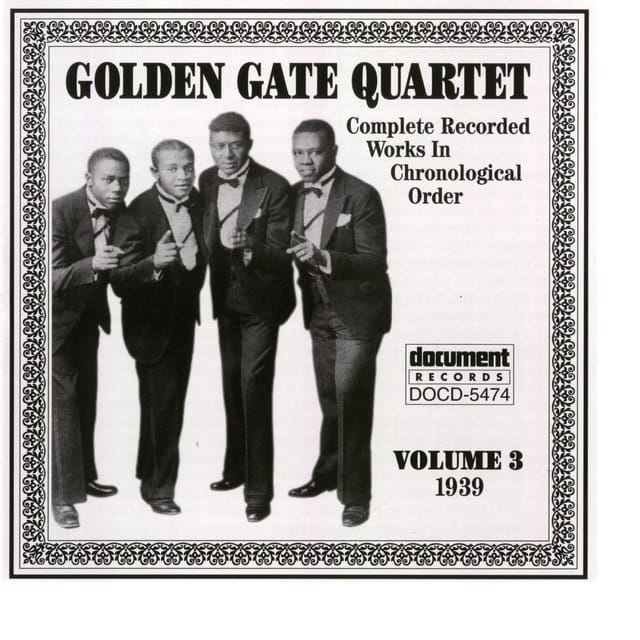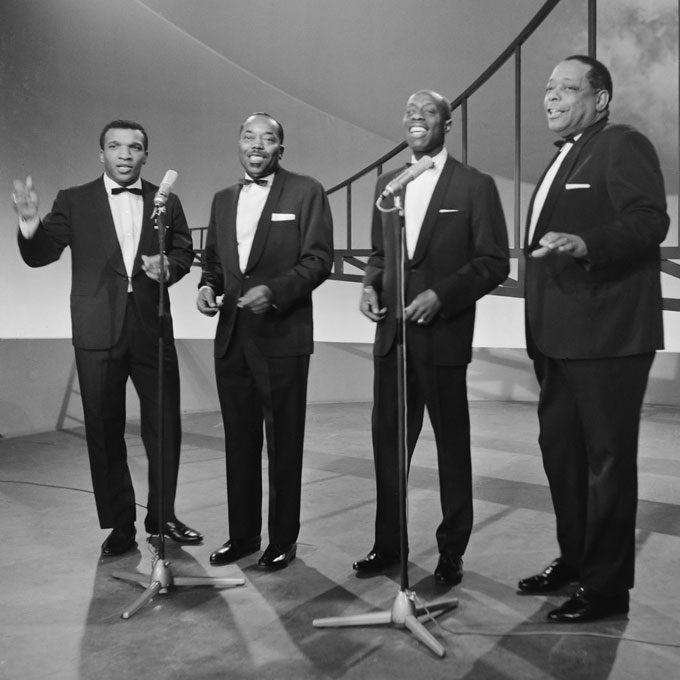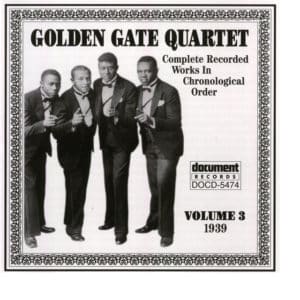Jubilee Quartets: The Cycle of Black Music

The Origin
The name “Jubilee” derives from the Fisk University Jubilee Singers. George L. White, the music director at Fisk University called them “Jubilee” singers as a reference to the Bible and the “year of the jubilee,” in which the enslaved people were to become free. The original Jubilee quartet was a subgroup of the Fisk Jubilee Singers, and was from 1909-1916. The voice parts were: first tenor, second tenor, first bass, and second bass. Early Jubilee Quartets sang in close harmonies, and the performances were very formal and followed the norms of Western music and performance.
The Evolution

As the Jubilee Quartet style spread from academic settings to the church, the performance style grew to be more similar to that seen and, rather, experienced, in Black churches. Jubilee Quartets began to sing more than just Negro spirituals, and performed Gospel music as well.
The group shown on the left is the Golden Gate Quartet (formerly known as the Golden Gate Jubilee Quartet). The group was started in 1934 by four high school students in Norfolk, Virginia. The group remains active to this day, with new members.
What made the Golden Gate Quartet revolutionary is that they infused the traditional spirituals with other genres, such as jazz and blues.
Performances
What Does This Say About Black Music as a Whole?
From the earliest inception of “African American music,” performers have adapted, remixed, and infused other African American pioneered genres to celebrate the culture.

Jubilee Quartets: The Cycle of Black Music
Jubilee Quartets: The Cycle of Black Music The Origin The name “Jubilee” derives from the Fisk University Jubilee Singers. George L. White, the music director

